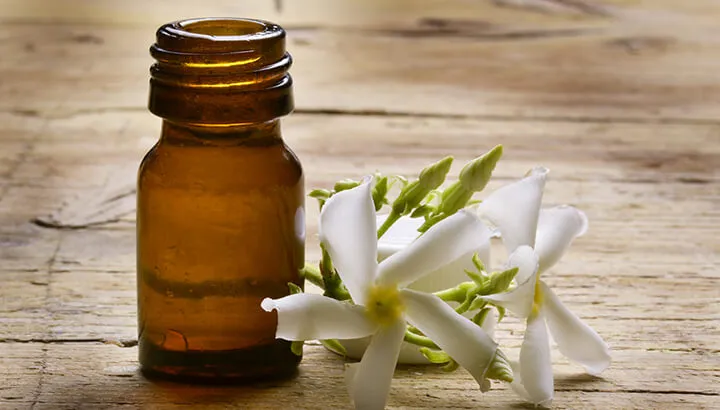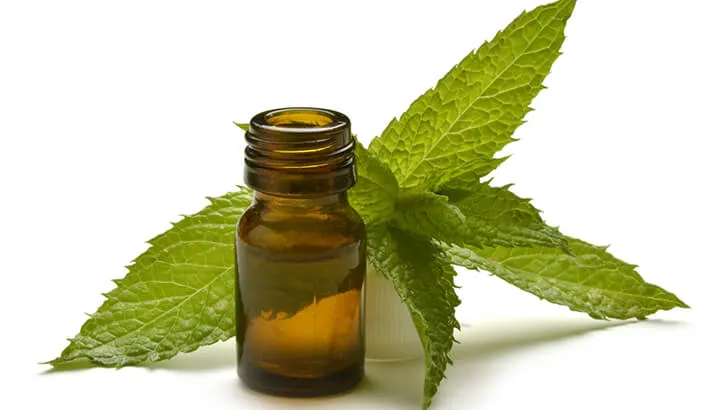
- Share on Facebook334
- Share on Pinterest
- Share on Twitter
Your sense of smell plays a large part in your everyday life, from influencing how you think and what mood you’re in, to what behaviors you display during the day. That’s why it’s nearly impossible to describe smells with language — olfaction is separate from your other senses, processed through different pathways in your brain.
Have you ever smelled something that took you back to a memory of your childhood? When you breathe in a scent, it goes around many areas of your brain, passing through the parts that control your emotions and your memory. Your brain is such an amazing machine that it can process all of the scent’s information even before you are aware of what you are smelling.
Essential oils work in the same way since inhalation is the fastest way to get them into the body. When you breathe essential oils in, the compounds go through the olfactory system and your whole body begins to benefit. The oils that you use should be a therapeutic grade, which tend to be very concentrated. These are not your everyday oils that can be bought just anywhere — research the source and make sure it is a reputable company that cares about the integrity of the oils they provide.
You only need a small amount of the oils to get the job done. You can smell the oils straight from the bottle or drop some into your hands. For a more aromatic experience, put a few drops into a diffuser, which is a device that disperses essential oils into the air.
Here are four common issues and the different essential oil blends that can help to provide relief. Enjoy!
Apathy

Do you or anyone else in your family struggle with apathy? The main symptom is a lack of motivation to do, complete or accomplish anything. People who suffer from it typically have a low energy level, an issue that seems to be growing in our society.
Try diffusing patchouli, jasmine and frankincense to help ward off the symptoms of apathy. These three oils are what I reach for when I don’t have any motivation to follow through on a task that I need to complete. These oils also help with feelings of depression, indifference, indecisiveness and mental confusion.
Asthma
Asthma is a condition that can cause spasms and swelling in the lungs, making it difficult to breathe. There can also be periods of wheezing, coughing and tightness of the chest. According to the Centers for Disease Control and Prevention, the number of people suffering from asthma is growing. In 2001, about one in 14 people had asthma, but by 2009, one out of every 12 people suffered from asthma.
Although asthma can be somewhat controlled by over-the-counter medications, we all know they come with many side effects. I prefer a more natural approach. When I need to breathe easier, I use my diffuser with a blend of eucalyptus, rosemary, peppermint and cardamom. These four oils have shown how helpful they can be to the respiratory system by helping to reduce inflammation of the mucous membranes.
Brain fog

Brain fog is a condition that many people suffer from these days. It has several side effects, for instance, feeling like you can’t focus, feeling like you can’t handle everyday issues and just not being present. This is caused by a number of things, including the processed foods we eat and other ways we choose to spend our time that does not help our brains to stay healthy.
When I’m feeling foggy, I use peppermint, frankincense and bergamot. Peppermint can help ward off absent-mindedness, frankincense is known to help with focus and bergamot has been shown to alleviate anxiety, stress and mild depression. These are some of the side effects that are often experienced by those who suffer from dementia.
Concentration
Individuals of all ages are experiencing a decreased ability to focus and concentrate. Some of these reasons might include tiredness, lack of sleep, hormonal changes, medication side effects, alcohol, drugs, infection, depression and emotional trauma, just to name a few.
When I have a hard time concentrating or I feel nervous and anxious, I blend vetiver, sandalwood and cedarwood. Together they help me have better clarity of mind, while also keeping me calm throughout my busy and stressful day.
How to use your diffuser
If you’re starting to feel any of these issues creeping up on you, just add three to five drops of each oil into your diffuser.
Don’t have a diffuser? You might want to consider getting one! There are a range of options and colors to choose from — some diffusers even have gentle color-changing lights to enhance the mood. Stay tuned for part II of more great reasons to use your diffuser… coming soon!
— Leilani Hampton
- Share on Facebook334
- Share on Pinterest
- Share on Twitter

